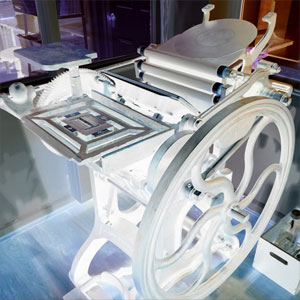![[ Contact Coldform ]](https://perishablepress.com/wp/wp-content/images/2008/wp-coldskins/coldform-icon_small.jpg)
With the recent release of my latest WordPress plugin, Contact Coldform, I am also creating a series of free, “drop-in” CSS skins for easy, “plug-n-play” customization. These skins employ valid, optimized CSS code designed for the following browsers: Continue reading »
![Contact Coldform [ Image: Coldform Icon ]](https://perishablepress.com/wp/wp-content/images/2008/wp-coldform/coldform-icon.png)
Welcome to the homepage for Contact Coldform, a secure, lightweight, flexible contact form with plenty of options and squeaky clean markup. Coldform blocks spam while making it easy for your visitors to contact you from your WordPress-powered website. The comprehensive Settings Page makes it easy to take full control with plenty of options and several built-in themes for styling the form. Coldform delivers everything you need and nothing you don’t — no frills, no gimmicks, just pure contact-form satisfaction. Now […] Continue reading »
![Unplug Unnecessary Plugins [ Photo: Macro shot of a Yttrium claw ]](https://perishablepress.com/wp/wp-content/images/2007/misc-chunks/wordpress-plugin.jpg)
In this article, my goal is to help you optimize WordPress by replacing a few common plugins with their correspondingly effective code equivalents. As we all know, WordPress can be a very resource-hungry piece of software, especially when running a million extraneous plugins. Often, many common plugins are designed to perform relatively simple tasks, such as redirect a feed, display a random image, query the database, etc. For those of us comfortable with editing PHP and htaccess code, there is […] Continue reading »
It must be national “update-your-WordPress-plugins” month around here or something. First a completely renovated version of Category LiveBookmarks Plus, then a WP-2.3-compatible facelift for BlogStats PCC, and now a completely widgetized & automated version of the popular AddMySite plugin. Coincidence? — I think not.. Continue reading »
Just a note to announce the release of a new version of BlogStats PCC. BlogStats PCC is a free WordPress plugin that provides an easy way to share your blog’s core statistics with your visitors. You can show off any or all of the following statistics: total number of posts total number of comments total number of categories total number of registered users total number of unregistered users total number of individual, static pages the date of the most recent […] Continue reading »

CLB+ As many WordPress users now realize, there have been many fundamental changes in the new version of WordPress. The latest version of WordPress — 2.3 — features a considerably revamped database structure, including a complete reorganization and redistribution of the wp_categories table. Unfortunately, such database alterations have rendered inoperable many popular plugins, proving quite unfortunate not only for millions of WordPress users, but also for those of us who donate time, effort, and resources toward the development of freely […] Continue reading »
Okay, I know what you’re thinking: “Oh great, not another article about WordPress nofollow!!” Well, if that sounds like you, I have good news! This is the last post (at least for awhile, anyway) concerning all things nofollow, dofollow, and even no-nofollow, for that matter. In fact, this post isn’t even about nofollow! It’s simply a summary of the articles I have written involving nofollow-related topics. The articles fit together so well, one might suppose they were planned deliberately as […] Continue reading »
Is that spam or are you just trying to comment? Removing nofollow attributes from your WordPress-powered site is a great way to encourage comments and attract visitors. Many commentators will leave useful, constructive feedback, but there will always be a few losers who would attempt to game your generous link love. Fortunately, identifying these mindless link whores is relatively easy. Here are a few priceless examples of actual spam (i.e., linked) comments left here at Perishable Press (links removed for […] Continue reading »
Recently, while deliberating an optimal method for eliminating nofollow link attributes from Perishable Press, I collected, installed, tested and reviewed every WordPress no-nofollow/dofollow plugin that I could find. In this article, I present a concise, current, and comprehensive reference for WordPress no-nofollow and dofollow plugins. Every attempt has been made to provide accurate, useful, and complete information for each of the plugins represented below. Further, as this subject is a newfound interest of mine, it is my intention to keep […] Continue reading »
During the most recent Perishable Press redesign, I noticed that several of my WordPress admin pages had been assigned significant levels of PageRank. Not good. After some investigation, I realized that my ancient robots.txt rules were insufficient in preventing Google from indexing various WordPress admin pages. Specifically, the following pages have been indexed and subsequently assigned PageRank: Continue reading »
For over a year now, I have been using Markus Kämmerer’s (Happy Arts Blog) WP-ShortStat plugin for WordPress. The plugin is relatively well-maintained and remains one of my favorite admin tools. Great for popping in on stats without logging into Mint. Nonetheless, due to its IP/country-detection functionality, WP-ShortStat has experienced its share of difficulties (e.g., read through the change log on the plugin’s home page). In this article, I describe how WP-Shortstat slows down the root index-page of a site, […] Continue reading »
![[ Image: Export Blogroll Icon ]](https://perishablepress.com/wp/wp-content/images/2007/misc-chunks/export-blogroll.jpg)
Announcing an easy way to export and automatically format your WordPress Blogroll for import into your del.icio.us social bookmarking account! The Export Blogroll plugin for del.icio.us simplifies the process of transferring your WordPress Blogroll to your del.icio.us account. del.icio.us now provides a way to import multiple links with a single file, however the file must emulate a specific (browser bookmark) format. The Export Blogroll plugin automatically formats your exported Blogroll content according to del.icio.us batch-upload specifications, making it super-easy to […] Continue reading »
![[ Image: del.icio.us Icon ]](https://perishablepress.com/wp/wp-content/images/2007/misc-chunks/delicious-icon.png)
After our recent WordPress-2.1 blogroll debacle, we concluded that the WordPress Links Manager (aka the Blogroll) is no longer a viable, long-term solution for managing bookmark collections containing large numbers of links. A far better solution, in the eyes of many savvy web users, is the free social bookmarking service del.icio.us. Using del.icio.us for over a year now, we have found it to be highly flexible, always reliable, and infinitely extensible. Plus, as a social bookmark service, everyone benefits from […] Continue reading »
Announcing the release of AddMySite (AMS) version 0.77. The new version features support for syndicated content feeds, and enables users to add their site’s feed to fifteen different feed-syndication and social-aggregator sites. Continue reading »
This post is hereby dedicated to the official logging of all unresolved and/or unexplained errors encountered during development or implementation of various plugins, extensions, themes, scripts, and/or anything else that results in bizarre and mysterious errors, bugs, or other anomalies. Further, we will also post any potential solutions, fixes, workarounds, or explanations for any errors logged in this post. This information is provided for reference purposes only — please share any related information you may have concerning any of the […] Continue reading »
Note to WordPress 2.0.5 users: Everything was working fine on this site before upgrading to WP 2.0.5. After upgrading, apparently, our feeds stopped validating and the BDP RSS Aggregator plugin refused to update our own feeds. After several hours investigating the situation, we determined that the Live Comment Preview plugin was interfering with our feeds validating, while the upgraded WordPress (2.0.5) was responsible for problems with the BDP plugin. Continue reading »

![Unplug Unnecessary Plugins [ Photo: Macro shot of a Yttrium claw ]](https://perishablepress.com/wp/wp-content/images/2007/misc-chunks/wordpress-plugin.jpg)

![[ Image: Export Blogroll Icon ]](https://perishablepress.com/wp/wp-content/images/2007/misc-chunks/export-blogroll.jpg)
